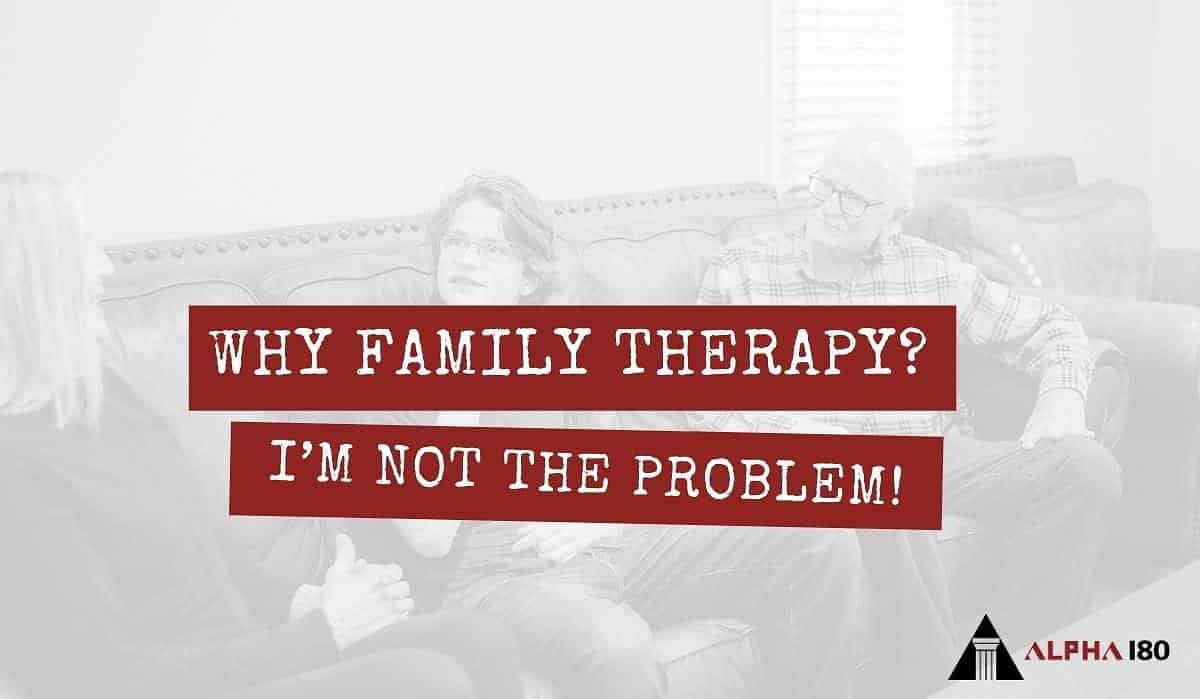Family therapy is similar to individual psychotherapy except that the entire family is participating and the family system is the identified client, rather than a single person. Therefore, the responsibility of working through issues and processing emotions is shared among all members of the family system. Family therapy focuses on validating the experiences of each family member and facilitating understanding among all participants with the aim to improve the overall quality of these relationships. Clinicians that facilitate family therapy maintain that problems exist between people, not within people.
When family therapy is used to treat addiction, the clinician will explore the cycle of interaction within the family system and how this influences substance abuse. The stress of living with a member of the family system that has a substance use disorder often leads to dysfunctional behaviors in the other family members. The most common dysfunctions are codependency and enabling. Codependents mimic the drug/alcohol abuser. They become dependent on the addict to ease their anxieties, much like the addict relies on drugs. This creates a toxic cycle, which can perpetuate addiction. Enabling is another dysfunction that is often the result of misguided efforts to help the addict. This can result in a deeper addiction as it allows the addict to avoid the realities of the world they have created. When this dynamic is present, the likelihood of recovery is greatly reduced unless family members struggling with codependency and enabling are able to accept the role they have had in the addiction and commit to recovery themselves.
Families are often unaware of the significant effect that a substance use disorder can have on developmental stages. This is demonstrated as young adults decide to go back to college and find that they are unable to meet expectations within their academic and social environments. Often these individuals find that they do not have the basic coping skills required to succeed. This is where families usually get hung up when dealing with a family member in recovery. They may measure success based on work and school accomplishments rather than meeting them where they are. “Meeting with them where they are” often involves letting go of your own expectations and listening to the goals of the individual in recovery and treatment professionals. Another relevant pattern among families is to focus all of their energy on the substance abuser. This type of response is present when the family members are spending their time blaming, shaming, or pleading with the member of the family that has a substance use disorder rather than focusing their energy on their own healing.
One beneficial way to seek help is to get involved in self-help treatment systems, such as Al-Anon, Alateen, or Nar-Anon. Being involved with others in a group setting is beneficial because you are able to process emotions and experiences that have occurred as a result of your family member’s addiction. Around one-fourth of the US population has an immediate family member who struggles with a substance use disorder. This creates a wide range of opportunity to connect with others that have gone through similar struggles. As your family member goes through stages of recovery, it is vital that you do your part to self-reflect on your role and gain knowledge about the process of addiction recovery. If your son is in a 12 Step program, one important task is to learn about what the 12 steps are. This will facilitate empathy toward your family member’s recovery progress. Alpha 180 is here to foster productive communication among family members and to provide resources relevant to their son’s recovery.
By: Hannah Weeks
Citations:
Bobek, Molly, and Hogue, Aaron. What is Family Therapy for Addiction, & How can it Help my
Family? Partnership to End Addiction, August 2019, https://drugfree.org/article/what-is-family-therapy-for-addiction-how-can-it-help-my-family. Accessed 30 November 2020.
Gladding, Samuel. Family Therapy: History, Theory, and Practice. Pearson Education Inc.,
Inaba, Darryl, and Cohen, William. Uppers, Downers, All Arounders: Physical and Mental
Effects of Psychoactive Drugs. CNS Productions, Inc, 2014.






